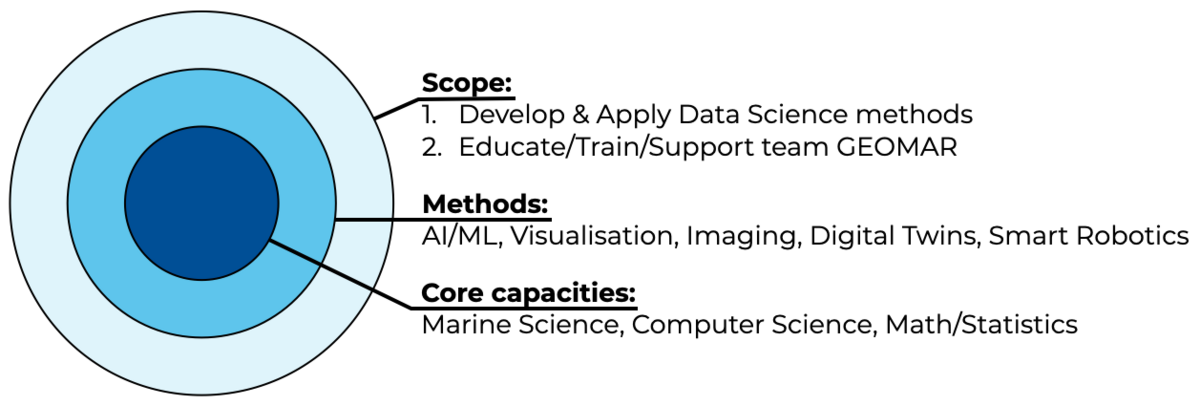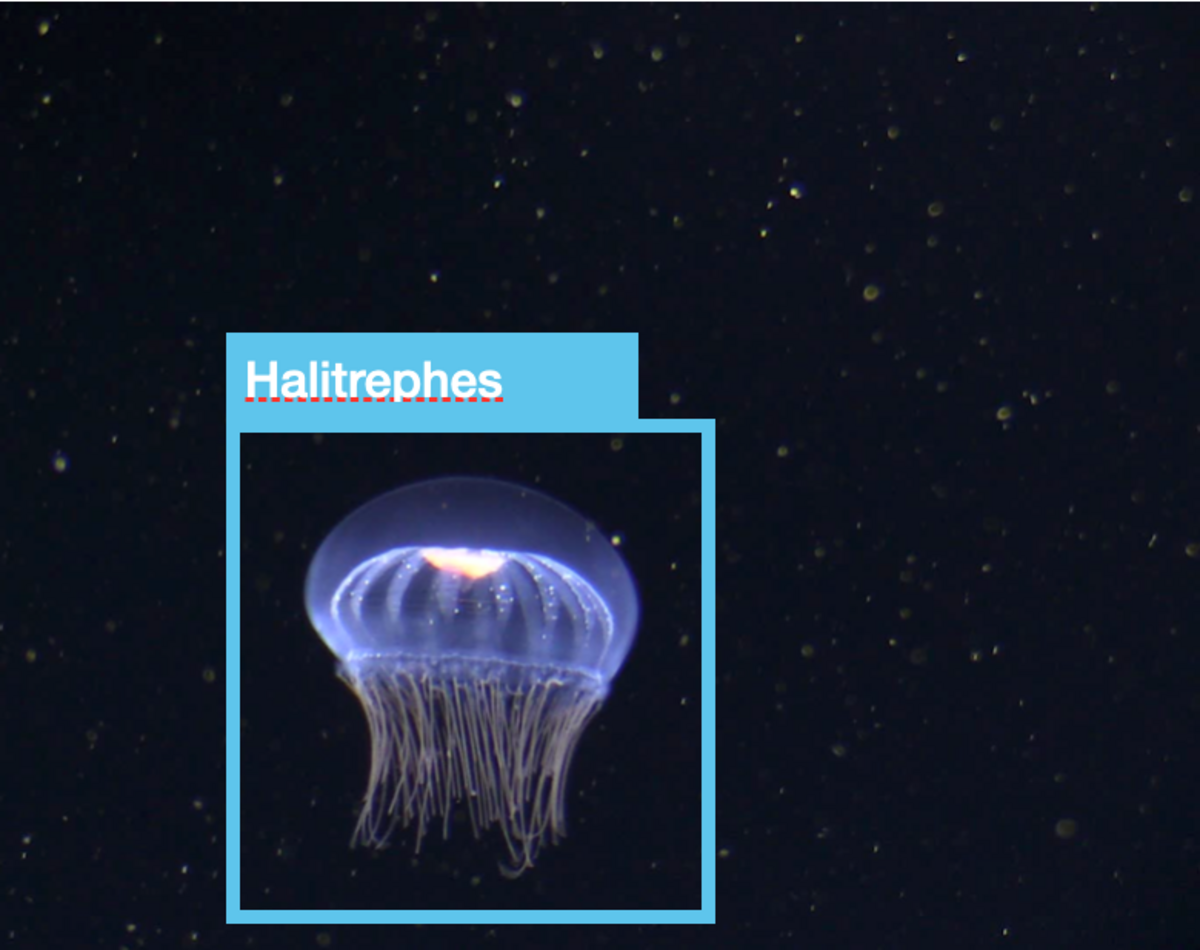dsu-info(at)geomar.de
Timm Schoening
Leitung DSU
Anne Hennke
Visualization & Stories
Laura Haffert
AI & Digital Twins
Karl Heger
Imaging & Robotics
Judith Fischer
AI, Imaging & Robotics
Sophie Schindler
Image Data Steward
Who we are
We are a team of computer scientists and of geoscientists with different expertise and backgrounds who are excited about the potential of data science (DS) to generate additional insights from scientific data.
Our Mission
We aim to establish the DSU as a unit for GEOMAR that connects all DS-related topics and activities at GEOMAR and acts as a contact partner for DS-related inquiries.
What we provide
The Data Science Unit (DSU) of GEOMAR develops Data Science methods for marine research and applies them together with the researchers to the heterogeneous data of GEOMAR and its partner institutes. The DSU offers support and training on Data Science methods to researchers at GEOMAR and serves as a partner in applying for external funding for Data Science projects as well as for the publication of scientific results based on Data Science methods.

The core competencies of the DSU team are marine science, computer science, and statistical methods. Based on these core competencies, the DSU offers experience in the development and application of Data Science methods such as Artificial Intelligence (AI), Machine Learning (ML), Visualization, Imaging, Digital Twins and Intelligent Robotics. The task of the DSU is to provide researchers at GEOMAR with these core competencies and Data Science methods and to train them in their application. The success of the DSU is measured by scientific publications, the acquisition of third-party funding for Data Science and an increased visibility of the scientific activities at GEOMAR.
The Data Science Unit began operations on November 1st, 2022 with a team of 4+4 colleagues. During the startup phase and consecutive pilot phase until July 2023 the team will scale-up its organisational, methodological and personell structures. The focus will be on selected key topics such as carbon in the ocean, Cabo Verde, the Boknis Eck time series and munition in the sea.

The use cases for Data Science are as diverse as the data at GEOMAR. Artificial intelligence and machine learning are used to search large and/or heterogeneous data sets for events (detection) and to assign these events to scientific categories (classification). Relationships and structures in high-dimensional data sets are searched and measured using data-driven learning methods (clustering, regression). The Data Science methods are implemented in dynamic programming environments (e.g. Jupyter Notebooks) and further developed in an agile - i.e. iterative and collaborative - manner with the scientists involved. Dynamic data and result exploration is enabled by browser-based visualizations. These tools enable the public to access highly complex interrelationships in marine research and fundamental processes in the oceans through appealing and individually controllable displays. By means of digital twins, measurement data, simulations and options for action are linked and made experienceable as well as explorable. Data from all scales - from kilometers to nanometers, from all domains - from the deep sea to the atmosphere, and from all disciplines of GEOMAR are explored, published and made tangible with this variety of Data Science methods.

The DSU is a team of GEOMAR and organizationally embedded in the Digital Research Services (DFD). The other teams of DFD - Research Data Management and Research Data Infrastructure - are essential partners to achieve the goals of the DSU. Other partners come from the extensive activities of the Helmholtz Association (HGF) such as the DataHub of the HGF Research Field Earth & Environment (E&E) and the five HGF Digitization Platforms. Local partners in Kiel are the MarData Research School, the Integrative Research Foci (IRFs) of the GEOMAR 2030 Strategy and the Christian-Albrechts-Universität Kiel (CAU).
Every member of Team GEOMAR who is dedicated to aspects of Data Science can participate in the DSU team. The DSU consists firstly of a core team of DSU employees; secondly of associated employees who are employed in the research areas or other central units but participate in DSU projects; thirdly of affiliated members of the DSU who participate in selected trainings, events and projects depending on availability and interest.

